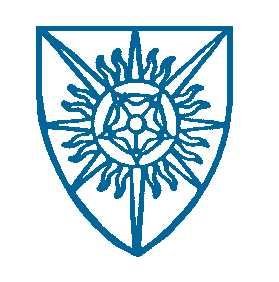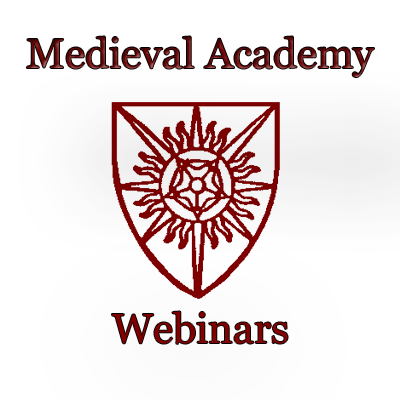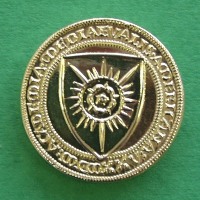ASCSA National Endowment for the Humanities Fellowships
Deadline: October 31, 2020
Founded in 1881, the American School of Classical Studies at Athens (ASCSA) is a premier resource in Greece for American scholars in the fields of Greek language, literature, history, archaeology, philosophy, and art, from pre-Hellenic times to the present. It offers two major research libraries: the Blegen, with over 113,000 volumes dedicated to the ancient Mediterranean world; and the Gennadius, with over 146,000 volumes and archives devoted to post-classical Hellenic civilization and, more broadly, the Balkans and the eastern Mediterranean. The School also provides centers for advanced research in archaeological and related topics at the Athenian Agora and Corinth excavations, and at the Malcolm H. Wiener Laboratory for Archaeological Sciences. By agreement with the Greek government, the ASCSA is authorized to serve as liaison with the Hellenic Ministry of Culture and Sports on behalf of American students and scholars for the acquisition of permits to conduct archaeological work and to study collections.
Since its inception in 1994, the National Endowment for the Humanities (NEH) Fellowship program at the ASCSA has demonstrated its effectiveness by supporting projects for 60 scholars with distinguished research and teaching careers in the humanities.
Eligibility: Postdoctoral scholars and professionals in all fields relevant to the mission of the ASCSA who are US citizens, or foreign nationals who have lived in the US for the three years immediately preceding the application deadline. Applicants must already hold their Ph.D. or have completed all requirements, except for the actual conferral of the degree, by the application deadline.
Terms: Two to four fellows will be selected for awards of 4, 5, or 9 months duration. The monthly stipend per fellow is $4,200 allocated from a total pool of $75,600 per year. Applicants should indicate their preference for the length and dates of tenure of the award to coincide with the American School’s academic year: 9 months, Sept. 2021-beginning of June 2022; 4 months, Sept. – Dec.; 5 months, January to the beginning of June. School fees are waived, and the award provides lunches at Loring Hall five days per week. The NEH Fellow will pay for travel costs, housing, residence permit, and other living expenses from the stipend. A final report is due at the end of the award period, and the ASCSA expects that copies of all publications that result from research conducted as a Fellow of the ASCSA will be contributed to the relevant library of the School. The NEH Fellow is also required to send one copy of all books and electronic copies of articles directly to the NEH.
NEH Fellows should use the American School of Classical Studies at Athens as their primary research base, but research may be carried out throughout Greece.
Application: Submit Senior “Associate Membership with Fellowship” Application online on the ASCSA web site by October 31. Link to application: https://ascsa.submittable.com/submit/115299/associate-membership-with-fellowship-application
The following items should be included in the application submitted online on the ASCSA web site:
1. Short abstract of the project (up to 300 words).
2. A statement of the project (up to five pages, single spaced), including desired number of months in Greece, a timetable, explicit goals, a selected bibliography, the importance of the work, the methodologies involved (where applicable), and the reasons it should occur at the ASCSA.
3. Current curriculum vitae. If not a US citizen, state US visa status /date of residence.
4. Names of three recommenders who are individuals familiar with applicant’s work and field of interest. Include a list of names, positions, and addresses of the referees. Instructions for recommenders to submit letters will be sent through the application portal. Please make sure your recommenders have submitted their letters by November 4. These letters should comment on the feasibility of the project and the applicant’s ability to carry it out successfully.
The following criteria will be used by the Selection Committee when considering applications.
1. Are the objectives and approaches clearly stated and coherent?
2. Will the project result in an important and original contribution?
3. Are the research perspectives and methodologies appropriate?
4. Is the projected timetable reasonable for the tenure of the fellowship?
5. What resources are necessary? Does the ASCSA provide resources that are not available at the home institution?
6. Will residence in Greece contribute substantially to the success of the project?
Web site: www.ascsa.edu.gr or https://www.ascsa.edu.gr/apply/fellowships-and-grants/postdoctoral-and-senior-scholars
E-mail: application@ascsa.org
The awards will be announced during February. Awardees will be expected to accept the award within two weeks of notification of funding, but no later than March 1.
The American School of Classical Studies at Athens does not discriminate on the basis of race, age, sex, sexual orientation, color, religion, ethnic origin, or disability when considering admission to any form of membership or application for employment.

 Dear fellow medievalists,
Dear fellow medievalists, The Medieval Academy of America is committed to being an organization where BIPOC scholars feel welcome, respected, heard, and safe. This commitment requires us to look both inward – at our governance, policies, and committees – and outward – at the scholarship we support, publish, and promote. As we begin the intentional work of diversifying our governance and committees, we are also committed to supporting and honoring scholarship that broadens the chronological, geographical, thematic, and critical dimensions of medieval studies, much of which scholarship is being done by scholars of color. To that end, the
The Medieval Academy of America is committed to being an organization where BIPOC scholars feel welcome, respected, heard, and safe. This commitment requires us to look both inward – at our governance, policies, and committees – and outward – at the scholarship we support, publish, and promote. As we begin the intentional work of diversifying our governance and committees, we are also committed to supporting and honoring scholarship that broadens the chronological, geographical, thematic, and critical dimensions of medieval studies, much of which scholarship is being done by scholars of color. To that end, the  Race, Racism, and our Institutions and Disciplines
Race, Racism, and our Institutions and Disciplines


